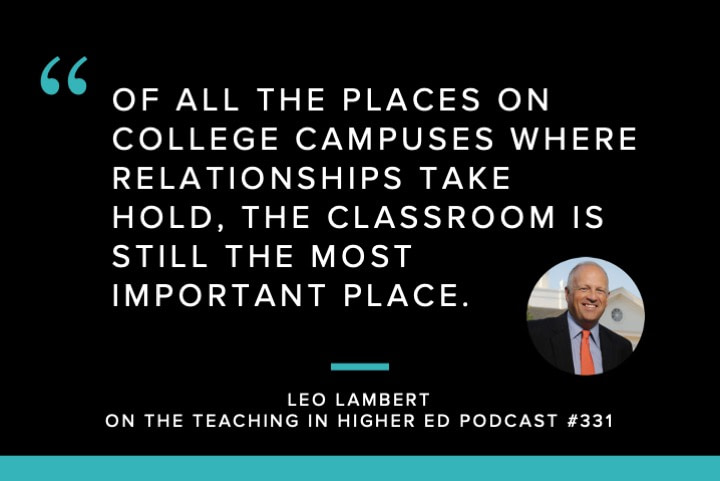Episode: Relationship-Rich Education
Pub date: 2020-10-15

Peter Felten and Leo Lambert talk about their new book Relationship-Rich Education on episode 331 of the Teaching in Higher Ed podcast.
Quotes from the episode

We don’t use relational language to talk about how to go to college. And we need to do that.
-Leo Lambert
Relationships are high stakes for students both in college and after college.
-Leo Lambert
Of all the places on college campuses where relationships take hold, the classroom is still the most important place.
-Leo Lambert
They’re not asking us to solve all their problems, they just want to be seen as humans.
-Peter Felten







